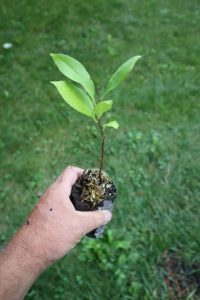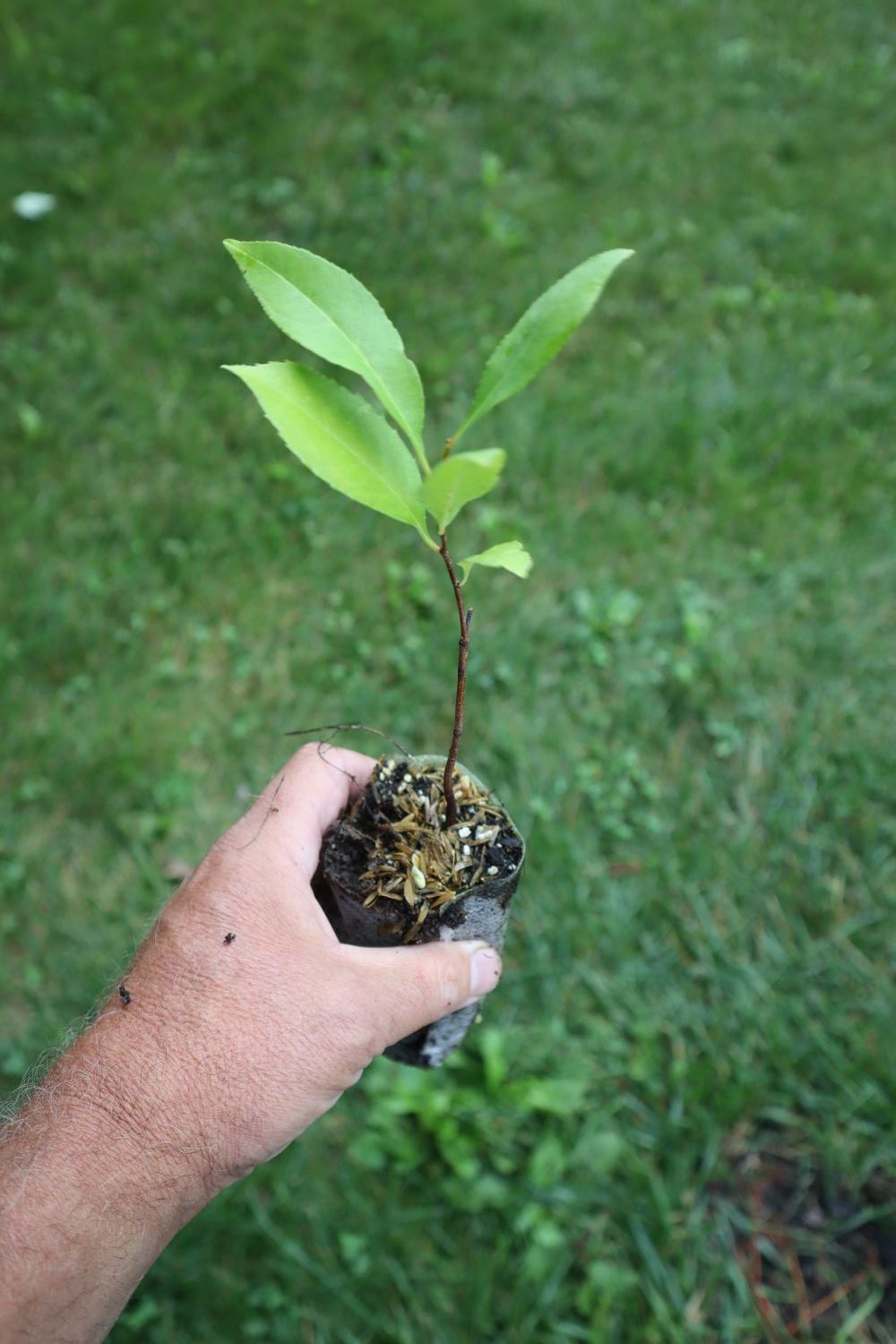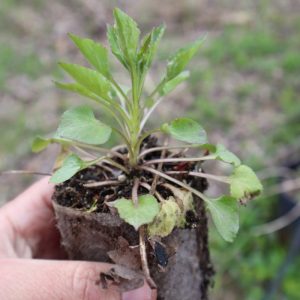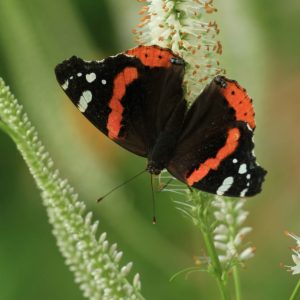Description

Black cherry starter tree (prunus serotina) Common eastern North American tree that can get 80ft plus. Prized for its wood, has clusters of white flowers in spring which turn to small clusters of dark colored little cherries. The bark is rather unique too. We like it because multiple butterfly and moths prefer it as a hostplant including the red spotted purple, eastern tiger swallowtail, promethea moth, and cecropia moth.
Dormant plant
These plants have gone dormant, but are ready to plant for the upcoming season. They have good roots but no foliage remaining.
Dormant plant tips
• Moisture doesn’t dry up as fast in the winter as the summer, but if we go through prolonged dry spells, don’t forget to water. Just because they are not visibly growing doesn’t mean the can dry out.
• As long as the ground is workable (not frozen), we suggest planting in the ground soon after you receive them. Our plants are kept outside and are winter hardy. Even without foliage they will keep growing roots. If you are unable to plant them right away, we suggest placing them in heavy duty cardboard boxes in a protected location outside. Propping them up with newspaper or leaf litter. Up against a building works great. Grocers or warehouse stores often have old banana/ vegetable boxes available and they work great!
• Do not transfer them to old black plastic pots, They have inconsistent temperatures and do not provide aeration to the plant. Transferring our plants to them will often cause root shock and poor growth.
• Don’t try to “wake them up” early in a greenhouse or indoors. We keep our plants outside and they have natural schedules.
• Some natives like blue lobelia, cardinal flower, monkey flower, tall bell flower, and sneezeweed will keep low foliage all winter, but won’t start actively growing again till spring. We suggest covering these with pine needles, leaf litter, or a frost blanket to protect them from heavy freezes.
• Native plants can come back up up at different times. Some species will be up in late winter (such easterners and nodding onion) while others wait until the ground has warmed in mid spring (such as legumes and passionflower). Don’t fret if some plants are up but yours have not yet.
• As all of our plants are intended for butterfly/ pollinator gardens, they have not been treated with anything.
• We take care when shipping our plants, but if you experience roughed up looking plants due to postal transit, do not worry. Our plants have good roots which is the most important thing and should start sending out new growth after planting.
• Most of our plants are native and some can be slow growing, go dormant early in their first year or two, or don’t flower right away. “First year they sleep, second year they creep, third year they leap!”
• Any questions, feel free to contact us. We want this to be an enjoyable experience.







